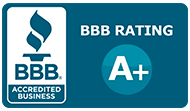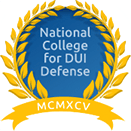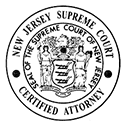Former Middlesex County Prosecutors At Our Firm Are Ready To Defend Your Son Or Daughter Against A Juvenile Criminal Charge At the Superior Court In New Brunswick
When children break the law, their cases are not handled in Milltown Municipal Court or in the Criminal Division of the Middlesex Superior Court. Juvenile criminal charges are heard in the Family Division of Middlesex County Superior Court on New Street in New Brunswick New Jersey. But make no mistake about the serious consequences a juvenile can face in this court as children are detained at the Middlesex County Juvenile Detention Facility all the time. You should also know that, irrespective of the severity of the charge your child is facing, you are required to retain a lawyer to defend them absent your income being low enough for you to qualify for a public defender.
If your child is the subject of juvenile delinquency proceedings or has been taken contacted or taken into custody by officers from the Milltown Police Department, contact the juvenile defense lawyers at the Law Offices of Jonathan F. Marshall. Our attorneys have more than 100 years of collective experience representing the rights of juveniles in the Family Division of the Middlesex Superior Court. Their knowledge of the laws pertaining to juveniles and courtroom skills have been developed through firsthand experience representing children in the superior court. When you need an attorney to look out for your child with superior accomplished representation, contact us. There is a lawyer available 24 hours a day and seven days a week to speak to you in a free and confidential consultation. Simply call us now at (732) 562- 0308.
Juvenile Offenses in Milltown
Anyone under 18 years of age is a juvenile under New Jersey law. Behavior that would be a violation of state criminal law if committed by someone older than 18 years of age is a juvenile proceeding filed in the family division of superior court instead of in the criminal courts.
The terminology and procedures followed in juvenile cases is also different from what you might have heard or seen in criminal cases in municipal court or in the criminal division of superior court. Among those differences are the following:
- Juveniles do not have the same right to a trial by jury as do adults. Juvenile delinquency cases are heard by a judge.
- Juvenile proceedings are confidential and closed to the public.
- Juveniles are not arrested. They are “taken into custody.”
- Juveniles are not proven guilty of the charges. Delinquency proceedings in which the allegations are proven end in an adjudication of delinquency.
- Legal representation is mandatory in juvenile proceedings.
Some of the offenses for which a juvenile proceeding can be started include:
- Possession of controlled dangerous substances like marijuana, cocaine, LSD, Xanax and Ecstasy
- Drug Distribution including marijuana, heroin and prescription drugs
- Shoplifting
- Burglary
- Property offenses, particularly criminal mischief and trespassing
- Aggravated assault and simple assault
- Terroristic threats and harassment
- Disorderly conduct
- Eluding
- Weapon possession
Juveniles 14 years of age and older may have their cases waived from the juvenile court and transferred to the criminal court to be tried as an adult if they are accused of committing a violent offense. Among the violent crimes for which a prosecutor may seek waiver from the family division to a criminal court include:
- Murder
- Robbery as a crime of the first degree
- Aggravated sexual assault
- Aggravated assault as a crime of the second degree
- Kidnapping
- Aggravated arson
The request for waiver of the family division jurisdiction is made at the request of the prosecutor. Waiver requires proof that probable cause exists to believe the juvenile committed the offense, but a juvenile defense lawyer working on behalf of the child can challenge the waiver application by proving the existence of a probability the child could be rehabilitated if the case remains in the juvenile court.
Disposition of Juvenile Cases in Milltown
The Juvenile Conference Committee is where the majority of juvenile cases are resolved. The committee serves as a type of diversion program to get the case out of the court system. This is in recognition of the fact the juvenile justice system should stress rehabilitation rather than punishment. A panel appointed the superior court hears from all of the parties, including the juvenile and the victim, and recommends how the judge to whom the case is assigned can resolve it.
If a case ends with an adjudication of delinquency by a family division judge, the law offers several options for the court to impose at disposition, the juvenile court equivalent of sentencing in the adult court, including:
- Diversion
- Probation
- Restitution
- Mental health or substance abuse treatment
- Academic or vocational programs
- Confinement to a secure state-run facility
- Release to parents
A skilled juvenile defense lawyer can influence the disposition of a case by offering evidence favoring a particular result and advocating for it on behalf of the child.
Milltown NJ Juvenile Defense Attorney
A skilled and knowledgeable juvenile defense attorney from the Law Offices of Jonathan F. Marshall can make a difference in the outcome of your child’s encounter with the juvenile justice system. Our understanding of the laws and juvenile court procedures combined with a formidable background in criminal defense give our lawyers the tools to secure a favorable result. Contact us now by calling (732) 562-0308 to speak to one of our attorneys in a free and confidential consultation. A lawyer is available around the clock to take you call.
Related Milltown Legal Resource Pages & Posts To Assist You













